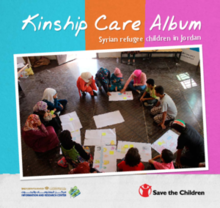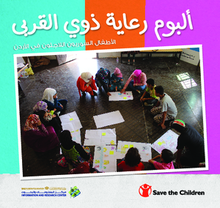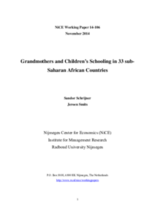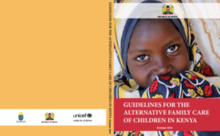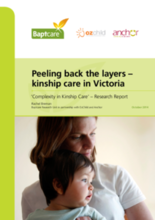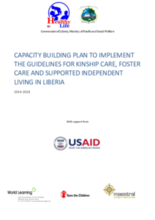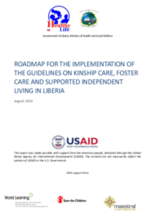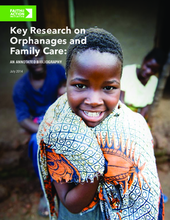Displaying 411 - 420 of 608
This Album on Kinship Care is a compilation of the works of Syrian refugee children in kinship care and their adult caregivers who took part in the participatory action research undertaken by Save the Children and the Information and Research Center – King Hussein Foundation in Jordan in 2014 in the Zaatari Camp and in the city of Amman.
This Album on Kinship Care is a compilation of the works of Syrian refugee children in kinship care and their adult caregivers who took part in the participatory action research undertaken by Save the Children and the Information and Research Center – King Hussein Foundation in Jordan in 2014 in the Zaatari Camp and in the city of Amman.
This study examines the effect of the presence of a grandmother in the household on the child in 33 Sub-Saharan African countries. The study focuses on the effect the grandmother’s presence has on the child’s educational participation, considering a range of circumstances.
The initial goal of the development of these guidelines was to seek to regulate Guardianship and Foster Care of children in Kenya.
Baptcare, OzChild and Anchor - three organizations that provide kinship care services in Victoria, Australia - commissioned this research to explore the impact that complexity in care arrangements has on children and families in kinship care.
This report is prepared within the MONEE project of UNICEF Regional Office for CEE/CIS. It provides an overview of alternative care in Armenia.
This capacity building plan supports the implementation of the Liberian Guidelines for Kinship Care, Foster Care and Supported Independent Living.
This “roadmap” document outlines the recommended implementation strategies and activities for strengthening family- and community-based alternative care in Liberia. It accompanies the Guidelines on Kinship Care, Foster Care and Supported Independent Living (the Guidelines) and the Capacity Building Plan to Implement the Guidelines (CBP).
This study focuses on examining the mediating effects of social support on familial well-being or quality of life in order to help professionals identify and enhance sources of support for all grandparent caregivers.
This resource is provided as a working bibliography of key research and evidence-based policy papers on the care of orphans and other vulnerable children separated from parental care.

